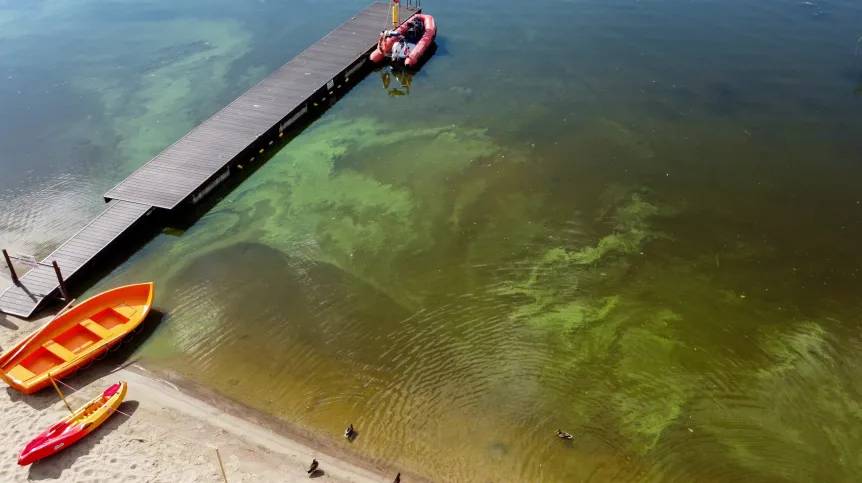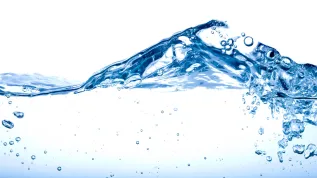
Researchers from Poland have developed a patented system to create special bathing areas in lakes that limit the inflow of pollutants and cyanobacteria, aiming to restore recreational use to many of Poland’s polluted water bodies.
According to the Adam Mickiewicz University in Poznań, the project involves constructing isolated bathing zones within lakes or rivers, protected by physical barriers that reduce contamination.
Water in these areas will be treated using a multi-step purification process, including filtration through bottom-placed systems or geological deposits, followed by aeration, ozonation, and UV radiation. The treated water is then reintroduced into the bathing area via a diffuser system, which also helps aerate and heat the water.
“The bathing area water will be treated in a system located near a designated section of the body of water,” said Dr. Grzegorz Borkowski from the university’s Department of Tourism and Recreation.
He added that the design ensures continuous operation throughout the swimming season.
To enhance the recreational value, the bathing zones may include additional water devices that support both the purification and heating of the water.
At the end of the season, the barriers can be opened, allowing treated water to mix back with the lake naturally.
The solution, developed by Adam Młynarczyk, Professor Zygmunt Młynarczyk, and Dr. Grzegorz Borkowski, directly addresses the health hazards posed by cyanobacteria, which frequently render Polish bathing areas unsafe during the summer.
The innovative system was presented to the Ministry of Sport and Tourism in early July, where its potential for nationwide implementation was discussed.
University officials now hope that the system will be adopted more broadly, offering a practical and environmentally conscious method to reclaim polluted recreational waters across the country.
am/ bar/













